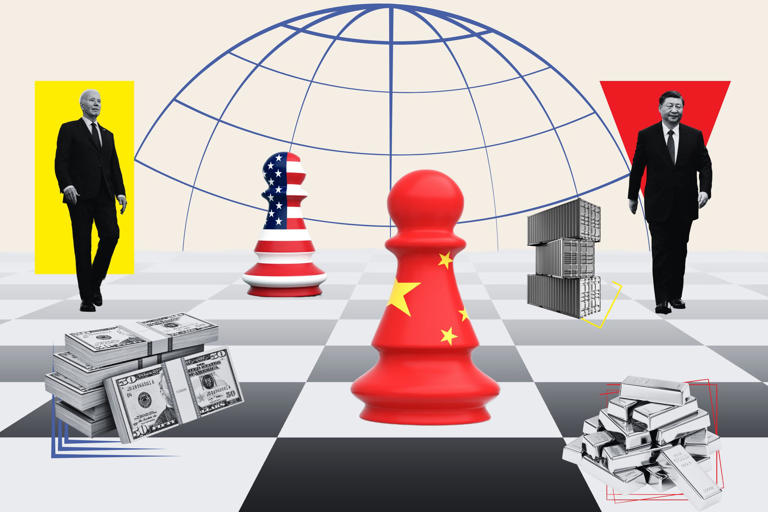China’s insatiable demand for commodities such as gold, copper, and other raw materials has ignited a debate over Beijing’s intentions, with some analysts suggesting that the country’s resource accumulation could be a strategic move to hedge against potential currency devaluation.
The notion of Beijing deliberately weakening the yuan (RMB), often referred to as the “nuclear option,” carries profound geopolitical implications. While such a maneuver could stimulate Chinese exports by making goods more competitively priced on the global market, it also comes with significant risks and challenges. For instance, deliberate devaluation could lead to increased costs for imports, fuel inflationary pressures, disrupt global currency markets, and potentially trigger trade conflicts with countries facing heightened competition from cheaper Chinese products.
Already, subsidized exports from China have strained diplomatic relations with several key trading partners, including the United States and Europe. Discussions about imposing tariffs on Chinese electric vehicles, for instance, underscore the tensions surrounding trade imbalances and market access.
Michael Pettis, a senior fellow at the Carnegie Endowment for International Peace, argues that China’s primary economic challenge lies not in bolstering exports but rather in addressing weak domestic demand. This perspective challenges the assumption that a devalued currency alone can remedy China’s economic slowdown.
Vincent Deluard, director of Global Macro Strategy at StoneX Group Inc., anticipates a strong response from the United States if Beijing were to devalue the yuan, particularly in terms of addressing trade imbalances and protecting domestic jobs. However, he suggests that such a move could offer temporary relief for U.S. policymakers Janet Yellen and Jerome Powell by alleviating inflationary pressures ahead of the 2024 elections.
The Federal Reserve’s cautious stance, as evidenced by its decision to delay interest rate cuts, reflects its desire for clearer signals of slowing price growth. While inflation remains relatively subdued in many sectors, public opinion polls indicate that Americans perceive it as a significant issue, second only to the economy in importance for the upcoming presidential election.
The debate over which candidate is better equipped to address inflation underscores the political significance of economic issues in shaping electoral outcomes. Despite potential discussions of retaliatory measures against China, significant action is unlikely before the election, given the complex interplay of economic, geopolitical, and domestic political considerations.
As the global economic landscape continues to evolve, the implications of China’s economic policies on international markets and political dynamics remain a subject of intense scrutiny and speculation.
